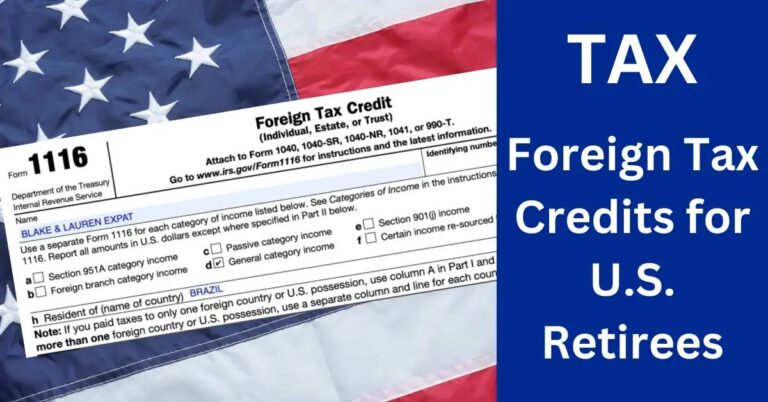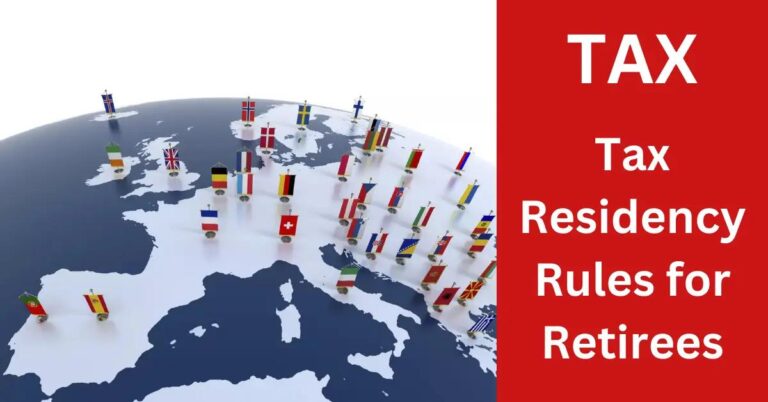TL;DR:
- UK citizens abroad may owe UK taxes on pensions and other incomes.
- Retirees must report overseas assets and foreign income to HMRC using self-assessment forms.
- Double Taxation Agreements prevent paying tax twice in different countries.
- Tax treaties determine where income is taxed (earnings vs. residency location).
- The P85 form prevents double taxation if returning to the UK.
- Countries like Portugal and Spain have favorable treaties, possibly offering tax-free pensions.
- Foreign tax credits can offset taxes paid abroad against UK tax liabilities.
- UK state pensions are taxed by the UK, but local treaties may impact where tax is due.
- Capital gains tax applies only to UK assets for non-residents; local rules may vary.
- Seek professional advice for nuanced tax plans and compliance.
Navigating tax responsibilities as a U.K. retiree abroad can seem tough. But don't worry; I'm here to guide you through it! This guide covers everything from tax forms to pensions. We'll explore tax treaties, cut through the confusion of double taxation, and ensure you understand your filing duties. You'll learn how to handle income from abroad and make the most of tax agreements. Let's make tax concerns a breeze for you!
What Are the Tax Reporting Obligations for Retirees Abroad?
Do UK citizens living abroad pay UK taxes? Yes, many still do. Living abroad doesn't erase all tax ties. If you get a UK state pension, you might still owe UK taxes. The rules often depend on your country of residence.
Let’s discuss tax filing requirements for UK expatriates. Retirees living abroad need to understand statutory forms. If you have overseas assets, like investments, you must declare them. The HMRC requires you to use forms, such as the “Self-Assessment” tax return.
Next, let's talk about reporting foreign income to HMRC. Even if you don't live in the UK, income earned outside the UK might be taxable there. You must report this through your VAT Return for the year. This helps avoid penalties and maintain transparency with tax officials.
Non-residents receiving UK pensions need to know about pension tax rules. Tax on UK state pensions for non-residents can vary. Sometimes, taxed amounts differ based on international agreements. Some countries offer tax-free pensions. Always check if your country has an agreement with the UK.
Self-assessment tax returns for non-residents are crucial. Completing them correctly is vital. They ensure any UK income is reported whether it's interest, pensions, or rent from properties. Sometimes, it’s helpful to seek expert advice when filing these forms.
Countries where pensions are not taxed include Portugal and Spain. They have agreements with the UK that impact tax rules. Always consult local laws and tax treaties to ensure you're compliant. These treaties help avoid double taxation and simplify your tax obligations.
Understanding these requirements helps you plan better. By knowing your tax duties, you'll avoid unwanted surprises. The HMRC provides guidelines to assist retirees abroad. If you're unsure, their website has lots of information on tax filing requirements for UK expatriates. Use these resources to stay informed and compliant while enjoying retirement abroad.
How Do Tax Treaties and Double Taxation Agreements Benefit Retirees?
Double taxation can be a headache for retirees abroad. You might wonder, "What are the tax implications for returning UK expats?" The precision answer is: you might pay tax twice on the same income, but tax treaties help. These agreements ensure you do not pay the same tax in two places. By understanding these Double Taxation Agreements, you can reduce your tax load.
So, how do these agreements work? They offer key tax relief to retirees by determining which country can tax specific income types. This means you pay tax where you earn your income, not where you live.
"Can I come back to the UK after P85?" Yes, you can. But inform the HMRC through the P85 form when you return. This form helps avoid double taxation on your worldwide income. If you do not handle this, you might face unexpected tax bills.
Certain countries have better tax treaties with the UK. Countries like Spain, France, and Portugal offer favorable terms for British retirees. These rules can save you money if you know how to use them.
Using foreign tax credits can also lessen your tax cost. These credits allow you to offset the income tax paid abroad against UK tax. If you pay 10% tax in another country, you might get a foreign tax credit for that amount in the UK. It means you pay less or no extra tax at home.
So, what should you do? First, know which countries have tax treaties with the UK. Then, check if your foreign income is covered by these treaties. Lastly, ensure you apply for tax credits and relief to limit your foreign tax bills. By doing this, you can kiss goodbye to double taxation worries and enjoy your retirement fully.
How Are Different Income Types Taxed for British Retirees Abroad?
As a British retiree living abroad, understanding tax rules is crucial. Let's start with the UK state pension. Is the UK state pension taxable in the UK if you're not living there? The answer is yes. The UK taxes state pensions regardless of where you live. But, you might not pay UK tax again if your new country taxes it first. This depends on tax treaties between the UK and your new home. Each country sets its own rules, so check local tax laws.
Now, what if you're living in the USA? Do you pay tax on your UK pension there? Yes, you might. The USA taxes foreign income, including pensions. The tax treaty helps avoid paying the UK and the USA on the same income. You will report the income to the IRS and might get a credit for UK taxes paid.
Foreign pension income taxation can vary widely between countries. If you left the UK for good, you should inform the HMRC. You might need to complete a P85 form to claim a tax refund or change your tax status. You might become classified as a non-resident for tax purposes. This could alter how your UK income is taxed.
For retirees abroad, managing dividend income involves understanding double taxation rules. Dividend income might be taxed in both the UK and your new country. Tax treaties often reduce the burden, providing tax credits.
When dealing with capital gains tax, know that only UK assets are subject to UK capital gains tax for non-residents since April 2015. But, your new country might tax all capital gains. Review the local tax policies to prevent surprises.
Withholding tax applies to rental or foreign income, often taken by the country where the income arises. You might get relief or credit from the UK, depending on your circumstances and relevant tax treaties.
Each situation differs, and professional advice can help you navigate these complex tax obligations effectively.
Conclusion
Understanding your tax responsibilities abroad is key to enjoying retirement. Whether reporting investments or using tax treaties, follow the right steps. Know your forms, report pensions correctly, and don't ignore foreign income. Use double taxation agreements to your advantage. These tips can make tax season less stressful. Remember, being informed helps you navigate tax obligations smoothly. Enjoy your new life abroad with peace of mind.












